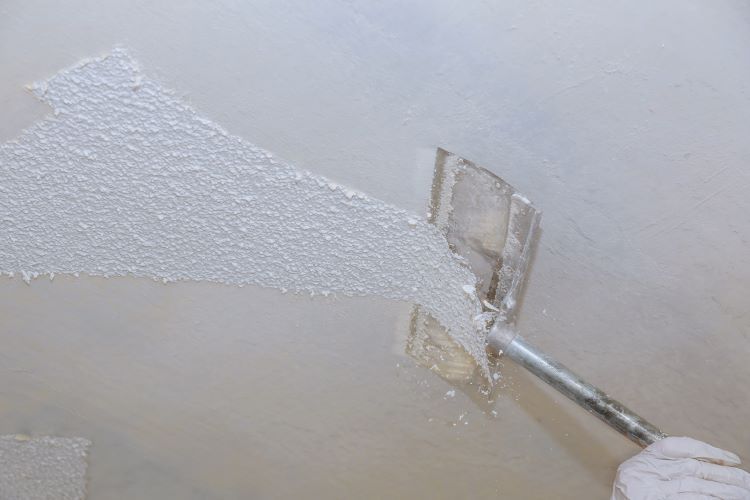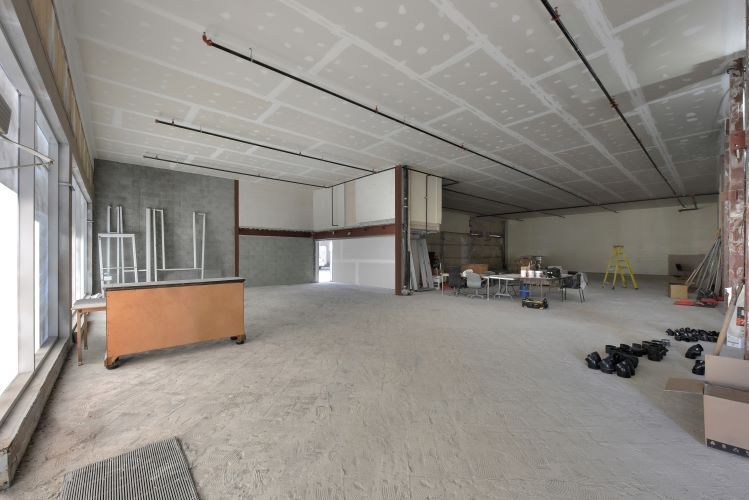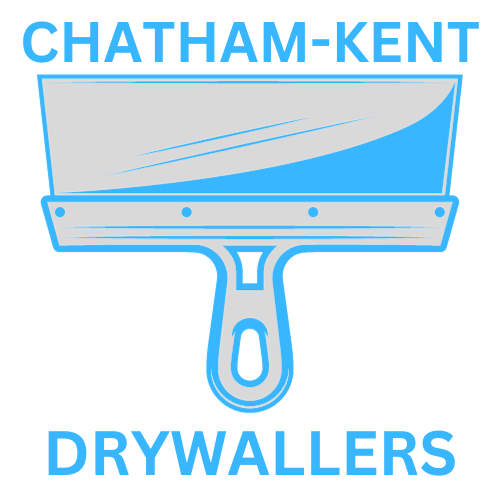Popcorn Ceiling: To Remove or Cover Up?

Say Goodbye to Popcorn Ceilings
Popcorn ceilings, also known as textured or stippled ceilings, were once a popular choice for homeowners looking to add visual interest to their interiors. However, as trends have evolved and design preferences have shifted, popcorn ceilings have fallen out of favor. In addition to being outdated, popcorn ceilings pose several challenges and drawbacks that make their removal a worthwhile investment. At Chatham-Kent Drywallers, we specialize in popcorn ceiling removal and are here to explain why you should consider removing this textured finish and why hiring professionals like us is the best choice for the job in Chatham, Ontario.
Why Remove Popcorn Ceilings?
- Outdated Aesthetic: Popcorn ceilings are a relic of past design trends and can make a home feel dated and unappealing. Removing popcorn ceilings can instantly modernize and update the look of your interior spaces, increasing the overall appeal and market value of your home.
- Accumulation of Dust and Debris: Popcorn ceilings have a rough, textured surface that easily traps dust, dirt, and allergens. Over time, these particles can accumulate, making it difficult to clean and maintain the ceiling. Removing popcorn ceilings can improve indoor air quality and create a healthier living environment for you and your family.
- Difficulty in Repairing and Painting: Repairing and painting popcorn ceilings can be a challenging and time-consuming task. The textured surface makes it difficult to achieve a smooth finish, and patching up damaged areas can be tricky. Removing popcorn ceilings eliminates the need for frequent repairs and allows for easier painting and maintenance in the future.
- Potential Health Concerns: Popcorn ceilings installed before the 1980s may contain asbestos, a hazardous material known to cause serious health issues when disturbed. Even if your popcorn ceiling does not contain asbestos, the textured surface can harbor mold and mildew growth, posing health risks to occupants. Removing popcorn ceilings can eliminate these potential health hazards and create a safer living environment.
Why Hire Professionals Like Chatham-Kent Drywallers?
- Expertise and Experience: Our team of professionals has extensive experience in popcorn ceiling removal and is equipped with the knowledge and skills to safely and efficiently complete the job. We use industry-leading techniques and equipment to ensure smooth and seamless results, minimizing disruption to your home.
- Safety Precautions: Popcorn ceiling removal can release dust and debris into the air, posing health risks to occupants if proper safety precautions are not followed. As licensed professionals, we adhere to strict safety protocols and take measures to protect ourselves, your home, and your family during the removal process.
- Efficient and Timely Service: We understand that having construction work done in your home can be disruptive, which is why we strive to complete popcorn ceiling removal projects in a timely and efficient manner. Our team works quickly and diligently to minimize inconvenience and ensure minimal downtime for you and your family.
- Quality Workmanship: At Chatham-Kent Drywallers, we take pride in our craftsmanship and attention to detail. We strive for excellence in every project we undertake, ensuring that your popcorn ceiling removal is completed to the highest standards of quality and professionalism.
Removing popcorn ceilings is a worthwhile investment that can enhance the aesthetic appeal, indoor air quality, and overall value of your home. By hiring professionals like Chatham-Kent Drywallers, you can trust that the job will be completed safely, efficiently, and to your satisfaction. Contact us today to schedule a consultation and take the first step toward saying goodbye to popcorn ceilings in your Chatham, Ontario home.
You might also like



